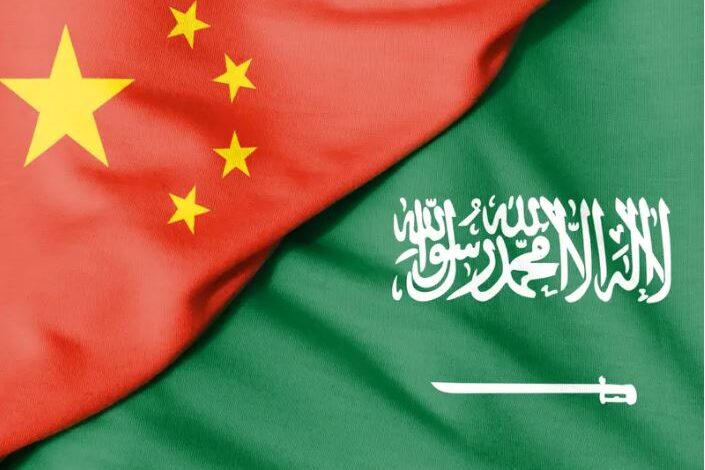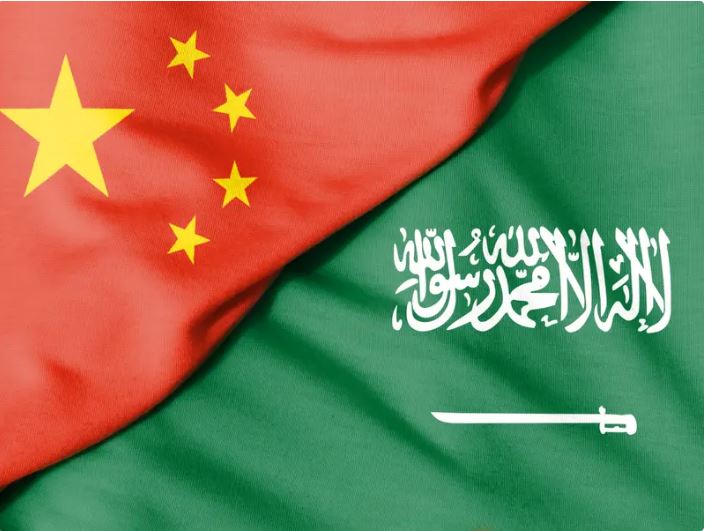Opinion: China isn’t trying to dominate the Middle East
Opinion: China isn’t trying to dominate the Middle East

Opinion: China isn’t trying to dominate the Middle East
Sultan Althari: Al-Arabia.Com
Great power rivalry is more pronounced now than at any time since the Cold War. US-China relations have rapidly deteriorated, mostly owing to increased geopolitical competition, economic frictions, and pandemic-induced cleavages.

Most recently, Nancy Pelosi – the Speaker of the US House of Representatives – chose to fan the flames of an increasingly volatile Sino-American rivalry by visiting Taiwan this month, defying President Biden’s wishes. Against the backdrop of growing economic competition and potential conflict over Taiwan, the China question is particularly relevant to Middle Eastern states forced to perform a delicate balancing act between a robust Western security apparatus and Beijing’s economic promise.
The depth and breadth of Chinese economic influence in the region makes that act particularly challenging. But what exactly is the nature of that influence? Is Beijing’s economic promise matched by an equally potent security presence? Are there limitations to that promise that Gulf States must consider as their relationship with China grows stronger?
Unrestrained rivalry leads to security dilemmas that distort the behavior of states trapped in them – a cost too hefty for countries in the Middle East. As it stands today, Beijing’s relationship with the Middle East is driven by energy security and its Belt and Road Initiative (BRI), a global infrastructure development strategy begun in 2013 with the aim of placing China at the heart of global trade networks. This entails sustained Chinese investments across multiple strategic sectors in the Gulf, such as logistics infrastructure in key ports such as Khalifa in the UAE, Duqm in Oman, and Jazan in Saudi Arabia.
Over the past couple of decades, China’s state-owned and private companies have invested over $250 billion in development projects in Saudi Arabia, the UAE, Egypt, Iraq, and Turkey. Increasing interdependence over the past ten years is now culminating in a serial succession of strategic partnerships. To date, China has concluded such agreements with 15 Middle Eastern countries.
The most recent manifestation is a 25-year cooperation agreement with Iran – in defiance of US sanctions — worth $400 billion. As far as trade goes, a third of China’s energy imports come from Gulf States. Beijing is the Gulf’s largest trading partner, accounting for over $180 billion in 2020. Ditto for Saudi Arabia more specifically, where bilateral trade skyrocketed from a mere $3 billion in 2000 to more than $72 billion in 2019.
More recently, Beijing did not change its long-standing strategy of maintaining a diverse energy portfolio despite cheap oil prices back in April and May last year. China is also less dependent on Gulf oil than other leading Asian economies such as Japan or South Korea. Over the past decade, China cut its dependence on leading Gulf exporters in half – from 21 percent to a little over 10 percent, further diversifying its imports from Russia and Brazil. It is therefore no surprise that Gulf countries have been more eager to court China in times of hardship than the other way around.
Beijing’s security involvement on the other hand is best described as reluctant and non-confrontational. The most notable developments are the establishment of its first overseas military base in Djibouti, maritime security missions in the Arabian Sea and the Gulf of Aden, as well as the militarization of the Pakistani port of Gwadar. The strategic intent of Sino security developments is, however, tied to the BRI, and thus informed by Beijing’s global economic expansion as opposed to regional stability. China’s muted response to recent escalatory patterns of action between the US and Iran is a piercing reminder of the Chinese modus operandi.
As a strategic crossroads for trade routes and sea lanes linking Asia to Europe and Africa, the Middle East is crucially important for the future of the BRI. With the US downscaling its regional influence, China might be forced to relinquish its image as a free-rider and increase its military presence in the region to ensure its economic targets are met. From the perspective of local states, the Chinese principle of noninterference in domestic governance makes its engagement model particularly enticing.
But this also extends to non-aligned neutrality between states. Premised on a belief in a multipolar region, Beijing deftly avoids choosing sides in proxy disputes while promoting stability through “developmental peace” versus the Western, value-based interventionist “democratic peace.” It remains to be seen how far the country will take this, and to what end goal.
For states in the Gulf, China is a cornerstone of diversification, both economically and geopolitically. Strategic alignment with Beijing is in part a hedging strategy meant to circumnavigate Western pressure regarding matters of internal governance, while actively signaling to value-driven partners that a strategic alternative is strong and getting stronger. But recent inaction to escalatory patterns reveals the limits of that gamble. Gulf States should be careful in navigating China’s intrinsic economic value and the US’ indispensable security presence. The 1956 Suez incident is a cautionary tale that global superpowers can be exposed as paper tigers – GCC states would be wise to include that incident in their strategic calculus.
Beyond historical precedent, foreign policy experts today overlook the fact that Chinese energy interests in the region are only bound to decline. Why? Demographic trends. China’s population is on track to peak in the coming decade, only to decline at an accelerating pace thereafter. Between 2015 and 2040, China’s population aged 50 and older is on course to increase by roughly one-quarter of a billion people. In addition, China’s birthrate is in free fall. These trends will generate a steep decline in the demand for hydrocarbons over the next two decades – a time when GCC states will not only grapple with an aging population of their own, but also a plethora of diversification imperatives.
Economic promise does not guarantee regional security and stability. The energy-centric foundation undergirding Sino-Gulf relations is subject to volatile uncertainty, one which China is immune to, given its diversified energy portfolio and leading role in renewable exports. Unlike the US, Chinese free-rider involvement in the region is not systemic, and subject to fluctuation based on Beijing’s interests.
As China’s need for oil diminishes, so will the region’s importance. As it stands today, Beijing is uninterested in playing balance-of-power politics, let alone providing a security umbrella, with only an occasional nod to local security interests. Gulf States would be wise to internalize this fact as they navigate domestic reform and an increasingly mercurial geopolitical arena.
Sultan Althari




